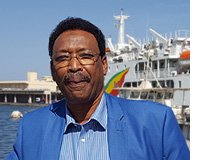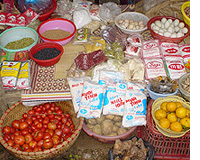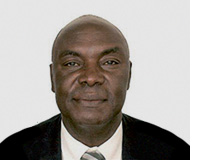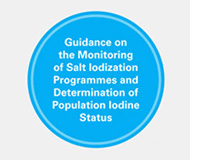Iodine Global Network (IGN)
Sprunglinks/Accesskeys
Zur Startseite (Accesskey 0) Direkt zur Hauptnavigation (Accesskey 1) Direkt zum Inhalt (Accesskey 2) Kontakt (Accesskey 3) Sitemap (Accesskey 4) Suche (Accesskey 5)
DONATE

The Iodine Blog - May 2020

The Iodine Blog - May 2020
A Global Public Health Practitioner with a medical background, Dr. Izzeldin Sharief Hussein is currently the Regional Coordinator for the Iodine Global Network (IGN) in the Middle East and North Africa. Izzeldin is also a special advisor to the Ministry of Health in Oman and an educator at Universities in Oman and in the UK.
During this unprecedented COVID-19 crisis, representatives from several international non-governmental organizations (NGOs) and UNICEF working on food fortification in the Asia region highlighted the importance of maintaining support for the routine fortification of staple foods with critical vitamins and minerals. The objective was to ensure that national governments remain committed to the implementation of mandatory food fortification, and that it should be protected and maintained as an essential service.
Papua New Guinea - working toward the elimination of iodine deficiency in one of the world’s most culturally diverse and rural populations. How to improve iodine intakes in communities that don’t have salt.
Mr. Wilfred K.M. Kimiri has been a champion for salt iodization in Kenya for nearly 20 years. Starting at Kensalt as an accountant in 1999, and eventually becoming General Manager, Mr. Kimiri developed an interest in eliminating iodine deficiency in Kenya after learning about the devastating consequences the lack of iodine was having on Kenyan citizens.
Webinar series - UNICEF Guidance on the Monitoring of Salt Iodization Programmes and Determination of Population Iodine Status
Beginning in November 2019, IGN has hosted seven webinars on the “UNICEF Guidance on the Monitoring of Salt Iodization Programmes and Determination of Population Iodine Status.”
The purpose of the webinars was to increase the awareness and understanding of the content of the UNICEF Guidance, aimed at those who could further implement the guidance.
The purpose of the webinars was to increase the awareness and understanding of the content of the UNICEF Guidance, aimed at those who could further implement the guidance.




